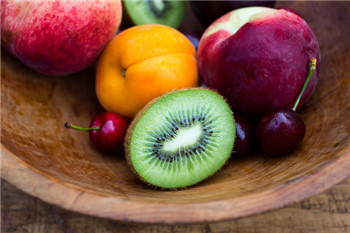
Good old tap water will go a long way toward washing pesticide residues off your fruit and vegetables, but “getting it down to zero is not feasible, ever,” said Dave Stone, a toxicologist who is the director of theNational Pesticide Information Center, a cooperative effort between Oregon State University and the Environmental Protection Agency. While washing can reduce pesticide residues on the surface, it cannot eliminate pesticides that are absorbed by the roots into the very tissue of the fruit or vegetable.
美國(guó)國(guó)家農(nóng)藥信息中心(National Pesticide Information Center,由俄勒岡州立大學(xué)[Oregon State University]和美國(guó)國(guó)家環(huán)境保護(hù)局[Environmental Protection Agency]合作建立)主任、毒理學(xué)家戴夫·斯通(Dave Stone)表示,使用質(zhì)量較好的普通自來(lái)水洗滌蔬菜和水果對(duì)清除其上的殘留農(nóng)藥大有助益,但“要想把它們洗得一點(diǎn)不剩是不可能的”。雖然清洗可以減少蔬果表面的農(nóng)藥殘留,但這樣做并無(wú)法清除被根部吸收進(jìn)入到蔬菜或水果內(nèi)部組織中的農(nóng)藥。
Scrubbing with a vegetable brush helps, Dr. Stone said, but using a store-bought veggie wash might not: A 2000 study by the Connecticut Agricultural Experiment Station found that rinsing lettuce, strawberries and tomatoes under tap water for 60 seconds worked just as well as using a commercial vegetable wash to significantly reduce pesticide residues. Using a veggie wash might even backfire, Dr. Stone said, because detergent residue could be added to fruits with porous outer layers.
斯通博士還說,使用蔬菜清潔刷來(lái)刷洗蔬果也有一定的幫助,但使用從商店買來(lái)的蔬果清洗劑卻可能沒有這樣的效果:2000年康涅狄格州農(nóng)業(yè)試驗(yàn)站(Connecticut Agricultural Experiment Station)的一項(xiàng)研究發(fā)現(xiàn),在自來(lái)水下清洗生菜、草莓和西紅柿60秒與使用市售蔬果清洗劑一樣可以有效地顯著減少農(nóng)藥殘留。斯通博士說,使用蔬果清洗劑甚至還可能適得其反,因?yàn)橄礈靹┯锌赡軙?huì)殘留在水果多孔的外層中。
The best way to wash is to place the fruit or vegetable in a colander and run water over it, rather than just dunk it in a bowl. “The force of the running water will drive off residues,” Dr. Stone said. Peeling also helps get rid of pesticide residues in the skin.
清洗蔬菜或水果的最佳方法是將它們放在濾器里用流水沖洗,而不是簡(jiǎn)單地將它們泡在盆子里。“流水的力量可以沖掉農(nóng)藥殘留,”斯通博士說。削皮也有助于去除蔬果外皮上的農(nóng)藥殘留。
The Environmental Working Group’s so-called Dirty Dozen and the Consumer Reports Always Buy Organic list, both of which are based on data from the federal Department of Agriculture, which tests fruits and vegetables after they have been washed, include items deemed to have relatively higher pesticide loads. Both lists include strawberries, nectarines and American-grown apples. If you’re considering buying organic, you might put these items at the top of your list.
美國(guó)農(nóng)業(yè)部(Department of Agriculture)對(duì)經(jīng)過清洗的蔬菜和水果(包括被認(rèn)為帶有較多農(nóng)藥的品種)進(jìn)行了檢測(cè),在這些數(shù)據(jù)的基礎(chǔ)上,美國(guó)環(huán)境工作組(Environmental Working Group)提出了“12種受污染食品(Dirty Dozen)”,《消費(fèi)者報(bào)告》(Consumer Reports)也列出了若干種“必選買有機(jī)產(chǎn)品(Always Buy Organic)”的食品。草莓、油桃和美國(guó)出產(chǎn)的蘋果均同時(shí)名列上述兩份“黑名單”之中。如果你考慮購(gòu)買有機(jī)食品,不妨把這幾樣放在購(gòu)物清單的首要位置。











